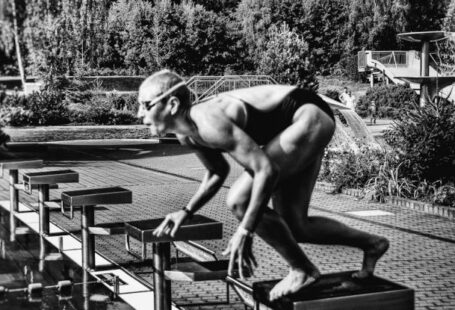Swimming is a demanding sport that requires a combination of strength, endurance, and technique. To excel in competitive swimming, athletes often turn to interval workouts as a key training method to improve their performance in the pool. Interval training involves alternating between periods of high-intensity effort and periods of rest or lower intensity. This type of workout is highly effective in enhancing swimming times and overall athletic performance. Let’s delve into how interval workouts can benefit swimmers looking to reach their full potential.
Enhanced Aerobic Capacity
Interval workouts are known to significantly improve aerobic capacity, which is crucial for swimmers aiming to excel in endurance events. By pushing the body to perform at high intensity for short bursts, followed by brief periods of rest, swimmers can enhance their cardiovascular fitness. This increased aerobic capacity enables swimmers to sustain higher speeds for longer durations during races, leading to improved swimming times.
Increased Speed and Power
Interval training is also effective in boosting speed and power, essential components for competitive swimmers. By incorporating sprints and fast-paced intervals into their training regimen, swimmers can develop explosive strength and speed in the water. This enhanced power translates to quicker starts, faster turns, and overall improved performance during races. The ability to generate speed and power efficiently is a key factor in shaving off valuable seconds from swimming times.
Improved Technique and Stroke Efficiency
In addition to building strength and endurance, interval workouts are instrumental in refining swimming technique and enhancing stroke efficiency. During high-intensity intervals, swimmers must focus on maintaining proper form and technique to maximize their speed and efficiency in the water. By repeatedly practicing correct stroke mechanics at high speeds, swimmers can ingrain optimal technique into their muscle memory. This leads to more efficient movement through the water, reducing drag and ultimately improving swimming times.
Mental Toughness and Race Preparation
Interval training not only benefits swimmers physically but also plays a crucial role in developing mental toughness and race preparation. The mental fortitude required to push through challenging intervals translates directly to competitive settings, where athletes must maintain focus and drive during races. By simulating race conditions in training through interval workouts, swimmers can better prepare themselves mentally for the demands of competition. This mental resilience can make a significant difference in performance, allowing swimmers to push past their limits and achieve faster swimming times.
Optimal Recovery and Injury Prevention
While interval workouts are intense and demanding, they also emphasize the importance of rest and recovery. By incorporating rest intervals between high-intensity efforts, swimmers allow their bodies to recover and adapt to the stress placed on them. This balance between work and rest is essential for preventing overtraining and reducing the risk of injury. Proper recovery practices, such as hydration, nutrition, and adequate sleep, are crucial for swimmers to reap the full benefits of interval training and maintain peak performance in the pool.
Strategic Implementation and Progression
To maximize the benefits of interval workouts, swimmers should approach their training with a strategic mindset. It is essential to design interval sessions that target specific aspects of swimming performance, such as endurance, speed, or technique. By tailoring interval workouts to individual goals and focusing on areas that need improvement, swimmers can make targeted progress in their training. Additionally, incorporating progression into interval training by gradually increasing the intensity or duration of intervals can lead to continuous improvements in swimming times and overall performance.
In conclusion, interval workouts are a highly effective training method for swimmers looking to enhance their performance in the pool. By improving aerobic capacity, speed, power, technique, mental toughness, and recovery, interval training offers a comprehensive approach to optimizing swimming times and overall athletic success. Swimmers who incorporate interval workouts strategically into their training regimen can expect to see significant improvements in their performance and achieve their goals in the water.





